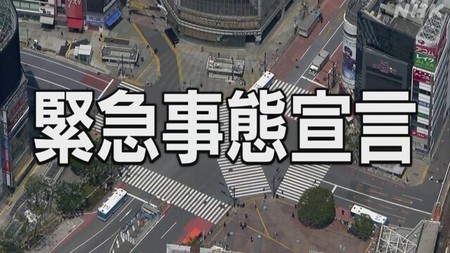
[ad_1]
 Five prefectures in Japan will move to more intensive anti-virus measures in a quasi-state of emergency state from August 2 to August 31 in response to the new coronavirus disease (COVID-19). The prefectures are Kyoto, Hokkaido, Fukuoka, Hyogo, and Ishikawa. This development comes as Japan reported over 10,744 new COVID-19 cases on Friday, the second day in a row that this number has topped 10,000.
Five prefectures in Japan will move to more intensive anti-virus measures in a quasi-state of emergency state from August 2 to August 31 in response to the new coronavirus disease (COVID-19). The prefectures are Kyoto, Hokkaido, Fukuoka, Hyogo, and Ishikawa. This development comes as Japan reported over 10,744 new COVID-19 cases on Friday, the second day in a row that this number has topped 10,000.
Japan also confirmed on Friday that Osaka, Kanagawa, Saitama, and Chiba will go under the stricter full state of emergency from August 2 to August 31. In addition, the current state of emergency in Tokyo and Okinawa has its end date extended from August 22 to August 31.
Tokyo reported 3,300 new cases on Friday, the third straight day over 3,000. Osaka reported 882 new cases on Friday, over double the daily count the week before. Kanagawa reported 1,418 new cases on Friday, the third straight day of record daily highs and the third straight day over 1,000. Saitama reported 853 new cases on Friday, the third straight day over 800. Chiba reported 753 new cases on Friday, the third straight day over 500 and the highest daily count.
The nation reported 10,699 new COVID-19 cases on Thursday — the first time there were over 10,000 new cases in one day. The daily death toll is below 20.
Government experts expressed their concerns for a shortage of hospital beds, as new cases have increased at least 50% weekly this month, and they project this exponential growth will continue unless measures are taken.
Under the current state of emergency, the government requests events to limit attendance to 50% of capacity or 5,000 people, whichever is less, and to end by 9:00 p.m. The government also requests large facilities such as department stores and arcades to close by 8:00 p.m. and movie theaters to close by 9:00 p.m. — but not close completely as they did in some of the previous states of emergency. The government is offering payments in advance to dining and drinking establishments if they close by 8:00 p.m. and stop serving alcohol. (Previously, the payments came after an application process.)
The Tokyo Olympics held its opening ceremony on Friday last week, although some sports began their competitions on the prior Wednesday, and some competitions are in prefectures outside Tokyo. Spectators are formally barred from Olympic events in all but three prefectures, but spectators still massed along the outdoor routes of some sports such as cycling and the triathlon.
Prime Minister Yoshihide Suga has so far been reluctant to end the ongoing Tokyo Olympics despite the majority of Japanese citizens polled wanting them to cancel, delay, or modify the games. The games were already delayed from last year and rescheduled to July 23-August 8 this year.
Source: NHK World
[ad_2]





